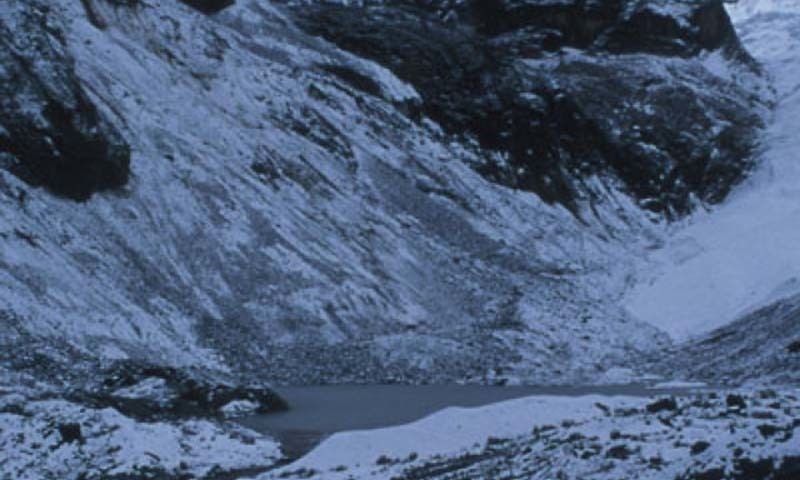WHEN floods hit Chitral this monsoon season, a new danger was discovered. A number of glacial lakes burst their banks and created devastating flash floods in the valleys below.
Known as a Glacial Lake Outburst Flood, the phenomenon is a growing danger in regions affected by acceleration in the melting rate of glaciers.
Also read: Glaciers melt to lowest level on record: study
A few GLOF events have hit Pakistan’s mountainous north in the recent past, but the flooding in Chitral saw GLOFs on an unprecedented scale. It is, therefore, heartening to see the Pakistan Meteorological Department inaugurating a programme to develop an early warning system for communities at risk; the PMD’s estimate that 36 glacial lakes in Pakistan present a GLOF threat is cause for deep concern, perhaps not for the entire country but certainly for those who live in the areas at risk.
An early warning system has already been installed in Chitral, and another in Gilgit-Baltistan. Moreover, the PMD should make a vigorous effort to learn how effective that system was in the recent floods to ensure that the right lessons are learned to strengthen early warning systems.
Know more: Timber mafia blamed for Chitral floods
But more importantly, it is possible to go beyond early warning systems when looking to mitigate the risks from GLOFs; programmes that involve other measures should also be looked into.
Small-scale projects have been run in countries such as Nepal and Peru that seek to reduce the likelihood of a GLOF through controlled drainage of lakes at risk.
Perhaps Pakistan can learn from the experiences of these projects too, which can be expensive. However, donor funds are usually available for them.
The inhabitants of the mountainous north, whether Gilgit-Baltistan or KP, have long been neglected by our policymakers, because their needs are unique and population densities are very small.
But the peculiar dangers opening up due to changing weather patterns affect these communities more than most others, and they deserve special focus and attention in developing adaptive strategies to help them cope with the challenges coming their way.
Published in Dawn, September 4th, 2015
On a mobile phone? Get the Dawn Mobile App: Apple Store | Google Play











































